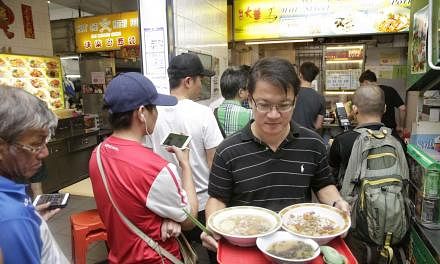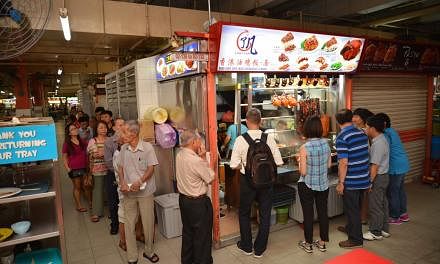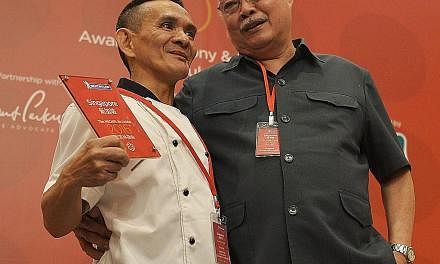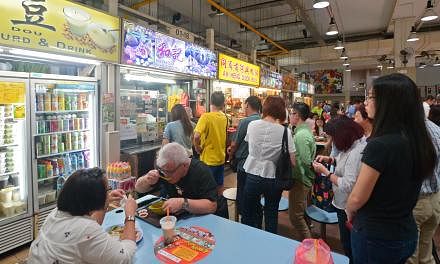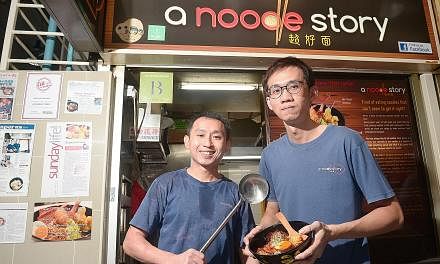In an interview right after the Singapore Michelin Guide was launched on Thursday night, Mr Michael Ellis, the international director of Michelin Guides, struggled to explain how Shoukouwa, a Japanese restaurant that officially opened only in May, got into the guide with two stars.
Michelin inspectors, he said, completed their tastings for the inaugural guide at the end of the same month.
He also said that different - "at least three or four" - inspectors, none of whom are from Singapore, had to go to a restaurant separately before awarding stars.
That would mean the inspectors visited Shoukouwa, which soft-opened very quietly in late March at One Fullerton, within the first weeks of its opening.
"It's probably the Japanese network. We sent a number of Japanese inspectors here to test the Japanese restaurants," Mr Ellis, 58, said. "It's the grapevine, chefs talk among themselves."
But he admitted that he was unsure of the timeline of the inspectors' visits to the restaurant.
Asked if Singapore inspectors would be included for upcoming editions of the guide, he said it was standard procedure to include local inspectors after the first year - but did not give exact dates for Singapore.
Michelin inspectors, he added, are full-time salaried employees comprising mainly food experts and former chefs or sommeliers. They remain anonymous and always pay the bill for their meals.
Mr Ellis also addressed the issue of having only foreigners assess Singapore food and how a non- Singaporean can understand Singapore food.
"Can a Singaporean understand French, Italian, Japanese food?" he asked. "You can't say only Singaporeans understand local food.
"Wherever you are in the world, even if you're eating raw reindeer in the North Pole, it's still about product, taste and texture."
Inspectors, he said, judge eateries on five criteria: quality of ingredients; skill in their preparation and the combination of flavours; level of creativity; value for money and consistency of culinary standards.
Michelin-starred restaurants, he added, are those that "hit the ball out of the park".
The challenge for the inspectors who came to Singapore, he said, was the sheer number of eateries here, especially the hawker stalls.
"There are more than 100 hawker centres and dozens of stalls in each one. And they're spread out across the island. We don't have unlimited resources and we couldn't send 100 inspectors here for six months.
"But it's a good problem to have because future editions can only get richer."
Asked how the inspectors managed to uncover an under-the-radar hawker stall such as Hong Kong Soya Sauce Chicken Rice & Noodle, which received one star, he said that the Michelin Guide, which began in France in 1900, had developed different techniques over the years.
"We look at other guide books and local sources. We also ask the hotel concierge. Or if we go to the butcher or gift shop, we ask where one can go for a good meal. We use local intelligence to suss out the hidden places."
On the Michelin Guide launching in Shanghai in September and Seoul in November, he said that is because there is a lot going on in Asia culturally and gastronomically. "We're trying to keep a finger on the pulse of what's going on in the world. And in that world, it's hard to deny that Asia plays a big role," he said.
The controversy that followed the launch of the guide in Asian countries - Japan in 2007 and Hong Kong and Macau in 2009 - "is all good", he said.
"When someone says, 'Oh they forgot my favourite snake soup restaurant', it shows passion."
He added: "You can agree with us or not. In every country we cover, we're not the only guide in town."


